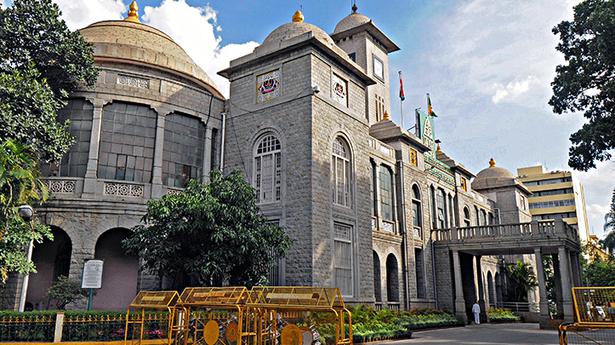
BBMP submits draft ward delimitation report, 45 new wards created
The Hindu
With this, the city has moved one step closer to holding the civic polls
The Bruhat Bengaluru Mahanagara Palike (BBMP) submitted the draft of the ward delimitation report to the Urban Development Department (UDD) on Thursday. The draft report increases the number of wards in the BBMP area to 243 from 198, creating 45 new wards in the same area, mostly in the outer zones. The delimitation exercise is carried out under the new BBMP Act, 2020. With this, the city has moved one step closer to holding the civic polls.
Rakesh Singh, Additional Chief Secretary, UDD, said the Department would soon notify the draft calling for public objections. Sources say the government will give two weeks time for the public to file their objections.
The Supreme Court on May 20 accepted the State government’s submission seeking eight weeks time to finalise ward delimitation and OBC reservation and hold civic polls in the city. “We are presently in the third week and it will likely take another four weeks for the government to issue final notification of the new delimited wards, well within the eight week deadline,” said a senior civic official.
Meanwhile, the Justice Bhaktavatsalam Committee tasked with three-step verification of political representation of OBCs in the city, is yet to submit their report. “We have already submitted details of all councillors who have been elected from the 1990s to the Bhaktavatsalam Committee,” said chief Civic Commissioner Tushar Giri Nath.

“Writing, in general, is a very solitary process,” says Yauvanika Chopra, Associate Director at The New India Foundation (NIF), which, earlier this year, announced the 12th edition of its NIF Book Fellowships for research and scholarship about Indian history after Independence. While authors, in general, are built for it, it can still get very lonely, says Chopra, pointing out that the fellowship’s community support is as valuable as the monetary benefits it offers. “There is a solid community of NIF fellows, trustees, language experts, jury members, all of whom are incredibly competent,” she says. “They really help make authors feel supported from manuscript to publication, so you never feel like you’re struggling through isolation.”

Several principals of government and private schools in Delhi on Tuesday said the Directorate of Education (DoE) circular from a day earlier, directing schools to conduct classes in ‘hybrid’ mode, had caused confusion regarding day-to-day operations as they did not know how many students would return to school from Wednesday and how would teachers instruct in two modes — online and in person — at once. The DoE circular on Monday had also stated that the option to “exercise online mode of education, wherever available, shall vest with the students and their guardians”. Several schoolteachers also expressed confusion regarding the DoE order. A government schoolteacher said he was unsure of how to cope with the resumption of physical classes, given that the order directing government offices to ensure that 50% of the employees work from home is still in place. On Monday, the Commission for Air Quality Management in the National Capital Region and Adjoining Areas (CAQM) had, on the orders of the Supreme Court, directed schools in Delhi-NCR to shift classes to the hybrid mode, following which the DoE had issued the circular. The court had urged the Centre’s pollution watchdog to consider restarting physical classes due to many students missing out on the mid-day meals and lacking the necessary means to attend classes online. The CAQM had, on November 20, asked schools in Delhi-NCR to shift to the online mode of teaching.









